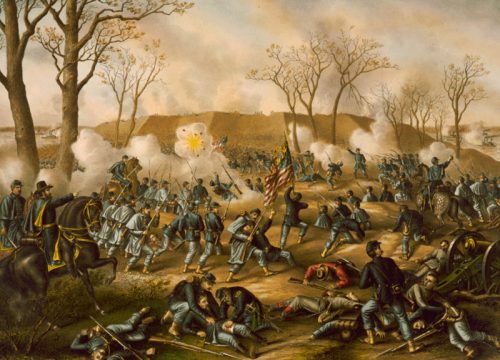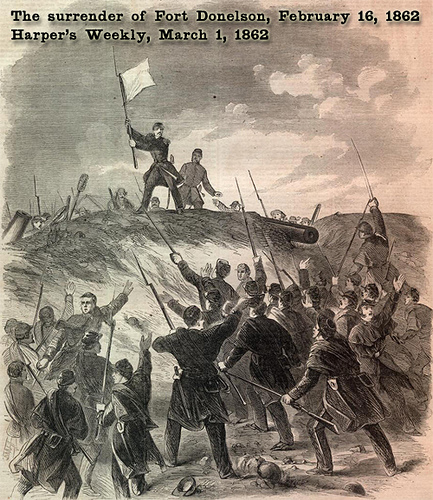Most Americans did not know the name Ulysses Simpson Grant in early 1862. However, by late 1868, all knew who he became: President of the United States.
The man known as U.S. Grant seemed destined for the highest office in the USA. He first came to national notice with a nickname: Unconditional Surrender Grant.
Here’s how that came to be. After the defeat of the Union army by Confederates at the First Battle of Bull Run in July 1861, Northerners became worried, and even despondent, about possibly losing a war they thought would be won in Virginia.
Out west, General Grant was marching his Union troops to surround by land the southern stronghold, Fort Donelson in Tennessee, while the Union navy attacked from the Cumberland River. At first, the battle did not go well for the North — Fort Donelson’s powerful cannon repulsed the Union boats. Then Confederate forces broke through Grant’s lines, seeking their escape from the trap.
U.S. Grant rose to the occasion, rallying his volunteers to resume the offensive, hold their lines, and drive Confederates back into their fort. On February 16, 1862, Southern General Buckner had no choice but to seek terms for surrender.
“No terms except unconditional and immediate surrender” was Grant’s reply. Telegraphs spread the news of this Union victory like wildfire, vaulting the General to celebrity with his new nickname “Unconditional Surrender Grant.”
In April 1865, my great-grandfather Archibald Van Orden would meet U.S. Grant while serving in his Union honor guard at the long-fought-for surrender of Robert E. Lee’s entire Army of Northern Virginia at Appommattox Courthouse.



